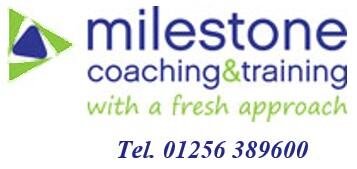10 Quick & Easy Tips To Help Students & Graduates Get Hired
Tips To Help Young People Get Their First Job Role
Tips To Help You Get Your Dream Job
Advice To Help Students Navigate The World of Recruitment
Whether you have just left college, or are a University Graduate, finding your dream role is not always straightforward. To help, we have put together a list of top tips that have been extremely useful for many of our young job-seeking coaching clients.
1. Make Getting A Job Your Job
Be disciplined in your job search and your time. Act as if you are already in the role, for example, set your alarm clock for 8 am each weekday. Get up, shower and have breakfast by 9 am, so that you are used to “working hours”. Avoid lounging around all day and kidding yourself that you will do some “job searching” this evening. If you become focused, disciplined and in a routine, you can always use this as an example of one of your strengths and qualities during an interview.
From 9 am turn off your notifications and focus on your job search efforts. These can include a host of actions, such as:
➢ Establish which Recruiters or Agencies specialise in the type of work you are interested in and make contact with them in order to go on their books. It is also worth investing the time to visit them in person if they are local, rather than just being one of the hundreds of other unknown applicants hidden behind an uploaded CV. If you build a connection with the Recruiter they will remember you when the right role comes in.
➢ Some companies offer incentives to their employees for referring a successful candidate to their company so keep in touch with friends and family members who are already in the workplace and invest time in growing those connections. Make it known to them that you are seeking employment, are keen to get experience, and what you have to offer.
➢ There are a vast number of career-related websites that regularly post job openings, including Monster, Indeed, Jobsite, Reed, and many more. It is definitely worth regularly spending time on your chosen websites and narrowing your search to help you find your chosen role once your CV is completely in order.
➢ Approximately 70% of job vacancies in the UK are currently never advertised, often referred to as the “hidden job market.” Instead, they are filled via other routes, including referrals, networking, LinkedIn, Facebook or Twitter. It is therefore worth investing the time networking at every opportunity, putting together your LinkedIn profile indicating that you are “seeking employment and opportunities’” and cultivating a professional and appealing Face or Twitter presence in order to meet other professionals within your chosen field.
➢ Attend as many job fairs as you can. These are typically targeted towards specific industries, though some job or recruitment fairs are more generalised and often list the organisations that will be present. Investigate any companies that interest you, take plenty of CVs and be mentally ready to sell yourself.
➢ If you already have in mind a few dream employers, it is a good idea to regularly visit the career section of their website. Put together a list of employers that you’d ideally like to work for and visit their website often or make contact and establish a contact name in the HR Department, connect with them on LinkedIn, and send them a speculative CV and letter enquiring if they foresee any upcoming vacancies.
2. Make Sure Your CV is in Order
Spend time compiling a well-presented CV that looks impressive, is accurate, and ideally up to two sides long. Use an easy to read layout including bullet points, white space, underlining, bold headings, a natural flow, and a small amount of colour. Use the internet to find examples or templates and remember that many schools, colleges, and universities have job placement services that can help new graduates to develop their CVs.
It is crucial that you ask several people to proofread your CV before you send it to potential employers. Do not rely exclusively on Spell Check, although it is a great tool, it can miss out on many issues which will make your CV both hard to read and very unprofessional.
Many employers will use spelling mistakes and grammatical errors as a means of sifting out applicants from the recruitment process. Their belief is that “if a candidate produces sub-standard and inaccurate work on their own CV when trying to impress and become employed, how will they perform in the post for my Company?”
Your CV has to get you over the first hurdle of the recruitment process, and it is an opportunity to demonstrate your skills and ability, so make sure you present it well! For more tailored help.
3. Dress to Impress
It is said that interviewers make up their minds about an applicant within the first 10 seconds of the interview, so your appearance is very important. Make sure you are well-groomed, have washed your hair, are smartly dressed, and have cleaned your shoes. You only get one chance to create a first impression and you need to shine above the competition, in every way. Your appearance and personal hygiene should be memorable for the right reasons!
4. Smile
There is nothing more uncomfortable for the interviewer(s) than trying to chat to someone who appears hard-faced, unfriendly and frowning throughout. Nerves often cause this, but they can frequently be misinterpreted as unfriendly and standoffish. Remember to smile at the beginning and end of the interview, and in between, when the situation allows, then it will not only help your nerves, it will also warm others to you, and help make a human connection. Not only that, smiling during the interview will convey a sense of calm and self-confidence. Don’t forget too, that most of the other applicants are likely to be feeling nervous, and therefore likely to appear hard-faced and unfriendly, so if you can make yourself smile and look self-confident, your interview will be more comfortable for ALL involved, and you will shine above the competition.
Having said that, don’t forget to check your smile before you go in for unwanted bits of food or lipstick.
5. Use Confident Language
The interview is your opportunity to sell your skills and experience to the interviewer and to persuade them that you are the right person for the role. It is not the time to be modest, play yourself down, or underplay your strengths. So, remember:
➢ Communicate with confidence. Use strong language and avoid “teenage language”, such as the over-used words: “like”, “kind of” or “sort of”. For more tailored help.
➢ Avoid diluting language that plays you down and robs your interview answers of any persuasion. For example:
“I’m quite good at admin”
“I’ve done a bit of reception work”
“I’m fairly confident when talking to customers”
➢ Avoid using weak words and phrases, for example: ‘just’, ‘sorry’, “I think”, “I feel”.
➢ Either remove the diluting and weak words completely, or better still, and if it is appropriate, make the statements more powerful and persuasive by adding in strong, persuasive words. For example:
“I’m good at admin”
“I’ve done reception work”
“I’m confident when talking to customers”
“I’m excellent at admin”
“I’ve got lots of experience of reception work”
“I’m extremely confident when talking to customers”
“I’m confident that…”
“I’m convinced that…”
➢ Use “I” in the interview, rather than “we”.
6. Be Open to Other Roles
When we first enter the job market it can sometimes be difficult to get the role of our dreams, because we haven’t yet gained any experience to be able to demonstrate our abilities to the potential employer. To overcome this chicken and egg situation, it can sometimes be worth taking a lesser role within the organisation or industry, and progress up the career ladder, once you have demonstrated your strengths and core competencies. Many graduates, despite being highly educated, show their willingness to work by accepting very junior roles, and then quickly climb the ranks within an organisation this helps to build an impressive CV and demonstrates an excellent work ethic.
7. Consider Short Term Roles
For all of the reasons listed in point 6, taking short term contracts or internships can be extremely wise. Not only that, but it is a great way to get a foot in the door, and potentially provide you with useful business contacts to call upon in the future. It is also the case that very often temporary employment can lead to a permanent position. Many recruitment agencies can assist with locating temporary or casual positions and contract work.
8. Volunteer
Similar to the points made in Sections 6 and 7 above, volunteer work can also be an excellent way of widening your skillset, providing good content for your CV, building contacts, and providing you with referees. Voluntary work also demonstrates a genuine willingness to get up and work. In addition, these roles can often turn into paid work, once you have impressed the organisation or person.
9. Attitude
If you turn up to the interview on time, are full of enthusiasm and energy, have a good positive attitude both towards the role, the organisation, and to yourself; with a smile on your face and are well turned-out – you will be 80% ahead of the other candidates already. A firm handshake and good eye contact are also highly recommended. Lastly, it is not just the first impression that counts, but also the last. End on a high by thanking them for their time and using a nice, strong end along the lines of: “thank you for seeing me and I would just like to say I’m really interested in the role and I hope to hear from you soon.”
10. Ask for Feedback
Whether you get the job or not, always ask for feedback after the interview. We can only address gaps in our performance or skillset if we know what those gaps are. If not, they remain in our blind spot and we will continue to repeat the same behaviours. If we welcome feedback as an opportunity to develop, take the comments on board, work on those areas or work with a career coach, we will improve our interview technique and increase our chances of getting the outcome we want in the next interview.
Tailored coaching help and support to help you nail the role you dream of much sooner is available. See below or click: For more tailored help
We hope you have found these tips useful and wish you lots of luck with your job hunting. If, however, you feel you would benefit from one to one career coaching to provide tailored help then please email Dawn to book a 1:1 career coaching session. During this coaching, Dawn will provide coaching on your CV content, your interview preparation and performance, and, perhaps most importantly, your confidence and self-belief, to help you get that role. For further coaching support and services. See below for more information:
➢ 1:1 career coaching. For much more tailored career coaching help and support to help you find your dream job quickly, call Dawn to book: 01256 389600 For further coaching support and services.
➢ Cost: £55 per session.
➢ Venue: Sessions can be over Zoom or face to face just outside, Basingstoke, Hampshire.
➢ Timings: During office hours, evenings, and Saturdays.
Milestone Training & Coaching Company Limited
Tel: 01256 389600 or Mob: 07855 743337
Email: dawn@milestone-coaching.co.uk
Enjoyed reading this or found it helpful? Sign up to receive my occasional Newsletters, via the box below or have a browse through the website: www.milestone-coaching.co.uk
Alternatively, join me on my FREE weekly “Life Coaching On The Move” Podcast series by clicking on the link: https://anchor.fm/dawn-fiske
Feel free to ‘share’ this article on your social media if you feel it would be of interest and help to your friends. Thank you so much!



